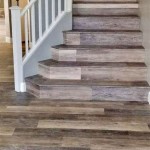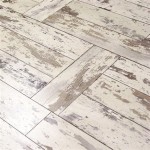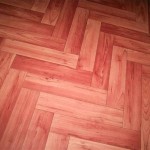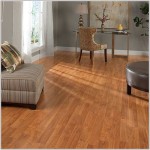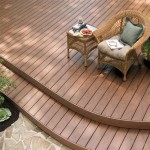```html
Heritage Mill Flooring Review: A Comprehensive Look
Heritage Mill flooring is a brand widely recognized for its variety of flooring options, primarily focusing on wood and wood-look alternatives. Sold predominantly through large home improvement retailers, it offers a range of products designed to appeal to both homeowners and contractors seeking cost-effective and aesthetically pleasing flooring solutions. This article provides a detailed review of Heritage Mill flooring, examining its product lines, construction quality, installation considerations, durability, and overall value proposition. The intent is to offer an objective assessment to assist potential buyers in making informed decisions.
The Heritage Mill brand encompasses several distinct product lines, each targeting specific needs and budgets. Commonly featured options include laminate flooring, engineered hardwood, and vinyl plank flooring, often mimicking the appearance of natural wood. The specific offerings may vary depending on the retailer and current market trends. Understanding the nuances of each product line is crucial in determining whether Heritage Mill flooring aligns with individual project requirements.
Product Line Overview
Heritage Mill's laminate flooring is typically positioned as an affordable and durable alternative to hardwood. It consists of a multi-layered construction, with a high-density fiberboard (HDF) core topped with a photographic applique layer that replicates the look of wood, stone, or tile. This wear layer is then protected by a clear, durable finish designed to resist scratches, dents, and fading. The thickness and quality of the wear layer are critical factors in determining the laminate's longevity, and Heritage Mill offers varying levels to cater to different traffic areas and usage intensities.
Engineered hardwood flooring from Heritage Mill offers a more authentic wood experience while providing enhanced stability compared to solid hardwood. It consists of a real wood veneer adhered to a core of plywood or HDF. This construction makes it less susceptible to expansion and contraction due to moisture fluctuations, making it suitable for installation in areas where solid hardwood might not be recommended, such as basements or over concrete slabs. The thickness of the veneer layer is an important factor influencing the floor's ability to be refinished and its overall lifespan.
Vinyl plank flooring, another prevalent offering from Heritage Mill, is a synthetic flooring option known for its water resistance and ease of maintenance. It is typically constructed from multiple layers of PVC, with a printed decorative layer providing the desired aesthetic. Vinyl plank flooring is available in a variety of formats, including planks and tiles, and can be installed using different methods, such as glue-down, click-lock, or loose-lay. Its durability and water resistance make it a popular choice for kitchens, bathrooms, and other moisture-prone areas.
Construction Quality & Materials
The construction quality of Heritage Mill flooring varies across its product lines. Laminate flooring, for instance, relies heavily on the density and quality of the HDF core. A higher-density core provides greater resistance to impacts and moisture penetration. The thickness and durability of the wear layer are also crucial determinants of its resistance to scratches, stains, and fading. Heritage Mill typically specifies the AC (Abrasion Class) rating of its laminate flooring, which indicates its resistance to wear and tear. A higher AC rating signifies greater durability and suitability for high-traffic areas.
For engineered hardwood, the thickness of the real wood veneer is a critical factor. A thicker veneer allows for more refinishing opportunities, extending the floor's lifespan. The quality of the adhesive used to bond the veneer to the core is also important, as poor adhesion can lead to delamination over time. The type of core material used (e.g., plywood versus HDF) can also affect the floor's stability and resistance to moisture.
The quality of Heritage Mill's vinyl plank flooring depends on the thickness of the wear layer and the overall composition of the PVC material. A thicker wear layer provides greater protection against scratches, dents, and scuffs. The use of virgin vinyl versus recycled vinyl can also impact the floor's durability and resistance to staining. Some vinyl plank flooring features added enhancements, such as embossed textures and enhanced printing techniques, to create a more realistic wood or stone appearance.
Installation Considerations
The ease of installation is a significant factor for both DIY enthusiasts and professional installers. Heritage Mill flooring typically employs user-friendly installation methods, particularly for its laminate and vinyl plank options. Many of these products feature click-lock systems that allow planks to be easily joined together without the need for glue or nails. This simplifies the installation process and reduces the likelihood of errors.
Proper subfloor preparation is essential for any flooring installation, including Heritage Mill products. The subfloor must be clean, level, and dry to ensure a successful and long-lasting installation. Uneven subfloors can lead to problems such as squeaking, buckling, or separation of the flooring. It is important to follow the manufacturer's instructions regarding subfloor preparation requirements.
For engineered hardwood, the installation method may vary depending on the product and subfloor type. Some engineered hardwood can be floated, glued, or nailed down. Floating installations are often preferred for their ease and speed, but they may require the use of an underlayment to provide cushioning and sound insulation. Glue-down installations provide a more permanent bond to the subfloor, while nail-down installations are typically used over wooden subfloors.
Vinyl plank flooring often offers the most flexible installation options, including glue-down, click-lock, and loose-lay. Glue-down installations provide a secure and stable bond, while click-lock installations are quick and easy. Loose-lay vinyl plank flooring is designed to be installed without adhesive, making it a convenient option for temporary or rental properties.
It is always recommended to consult the manufacturer's installation guidelines and seek professional assistance if needed. Proper installation is crucial to ensure the floor's performance and longevity, and to maintain the validity of any warranties.
Beyond the installation process itself, acclimatization is crucial. Allowing the flooring materials to adjust to the room's temperature and humidity for a specified period before installation can prevent warping and gapping after installation. The required acclimatization time varies depending on the flooring type and manufacturer's recommendations.
Another consideration is the use of appropriate tools and materials. Proper cutting tools, tapping blocks, and spacers are essential for a professional-looking installation. Selecting the correct underlayment, if required, is also important for providing cushioning, sound insulation, and moisture protection.
Finally, it is important to consider the direction of the flooring installation. Running planks parallel to the longest wall of the room can create a more visually appealing and spacious feel. However, other factors, such as the direction of light and the layout of the room, may also influence the optimal installation direction.
Durability & Maintenance
The durability of Heritage Mill flooring is contingent upon the specific product line and the level of care it receives. Laminate flooring, with its protective wear layer, is generally resistant to scratches, dents, and stains. However, it is important to choose a laminate with an appropriate AC rating for the intended use. High-traffic areas may require a higher AC rating to withstand wear and tear.
Engineered hardwood offers a balance of durability and aesthetics. The real wood veneer provides a natural look and feel, while the engineered construction offers enhanced stability. The thickness of the veneer determines its ability to be refinished, which can extend the floor's lifespan. Regular cleaning and maintenance are essential to protect the finish and prevent damage.
Vinyl plank flooring is known for its water resistance and ease of maintenance. It is highly resistant to scratches, stains, and fading, making it a durable choice for high-traffic areas and moisture-prone environments. Regular cleaning with a damp mop is typically sufficient to maintain its appearance.
Regardless of the flooring type, it is important to take preventative measures to protect against damage. Using floor protectors under furniture legs can prevent scratches and dents. Placing mats at entryways can help to trap dirt and debris, reducing wear and tear. Promptly cleaning up spills can prevent staining and water damage.
Specific maintenance recommendations vary depending on the flooring type and manufacturer's guidelines. Laminate flooring should be cleaned with a damp mop and a pH-neutral cleaner. Avoid using excessive water, as it can seep into the seams and damage the core. Engineered hardwood should be cleaned with a damp mop and a cleaner specifically designed for hardwood floors. Avoid using harsh chemicals or abrasive cleaners, as they can damage the finish. Vinyl plank flooring can be cleaned with a damp mop and a mild detergent. Avoid using abrasive cleaners or scouring pads, as they can scratch the surface.
Proper maintenance not only preserves the appearance of Heritage Mill flooring but also extends its lifespan, maximizing the investment and ensuring lasting satisfaction.
In summary, Heritage Mill offers a diverse range of flooring options, catering to various budgets and needs. Critical evaluation of the specific product lines, construction quality, installation requirements, and maintenance considerations is paramount in making an informed decision. Understanding these aspects will empower potential buyers to select the most suitable Heritage Mill flooring option for their individual projects.
```
Reviews For Heritage Mill Red Oak Natural 3 8 In Thick X 4 1 Wide Random Length Engineered Hardwood Flooring 20 Sq Ft Case Pg The Home Depot

Heritage Mill Red Oak Natural Pf9356 Home Depot Flooring Review Consumer Reports

Heritage Mill Red Oak Natural Pf9356 Home Depot Flooring Review Consumer Reports

Heritage Mill Oak Harvest 3 8 In Thick X 4 1 Wide Random Length Engineered Hardwood Flooring 20 Sq Ft Case Pf9355 The Home Depot

Heritage Mill Harvest Oak 1 2 In T X 5 W Engineered Hardwood Flooring 31 Sqft Case Pf9539 The Home Depot

Heritage Mill Harvest Oak 1 2 In T X 5 W Engineered Hardwood Flooring 31 Sqft Case Pf9539 The Home Depot

Heritage Mill Sc Oak Amaretto Pf9773 Home Depot Flooring Review Consumer Reports

Heritage Mill Natural Red Oak 3 8 In T X 4 W Engineered Hardwood Flooring 33 Sqft Case Pf9674 The Home Depot

Heritage Mill Smoky Mineral Pf9577 Home Depot Flooring Review Consumer Reports

Heritage Mill Light Oak 1 2 In T X 5 W Engineered Hardwood Flooring 31 Sqft Case Pf9538 The Home Depot
Related Posts

